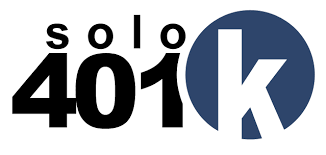Perks of a Self-Employed 401(k) You Need to Consider
 Many people think that the opportunity to plan for retirement with a 401(k) only exists when employed by a big business or corporation. For those who are self-employed, that mentality is a big reason why only a small percentage plan for retirement like they should. The reality is, however, that even though self-employed workers may not get the benefit of a contribution match like they would for their 401(k) while employed at a big business, there are still a host of other benefits they can take advantage of by starting a self-employed 401(k).
Many people think that the opportunity to plan for retirement with a 401(k) only exists when employed by a big business or corporation. For those who are self-employed, that mentality is a big reason why only a small percentage plan for retirement like they should. The reality is, however, that even though self-employed workers may not get the benefit of a contribution match like they would for their 401(k) while employed at a big business, there are still a host of other benefits they can take advantage of by starting a self-employed 401(k).
If you are a self-employed business owner who wants to start planning for retirement, here’s are some enticing benefits of a self-employed 401(k):
Simplicity
While running a business on your own is anything but simple, thankfully setting up a 401(k) for yourself is. As long as you don’t have any employees, you won’t have to deal with any compliance paperwork or discrimination tests when setting up your 401(k), and you also won’t have to worry about paying any administrative fees for plans that cover employees. You can look at is essentially as a simple savings account that offers far more benefits and growth potential than your bank. Working with a retirement services provider for businesses can help guide you toward the right type of 401(k) option for your situation.
Drop a Tax Bracket
A self-employed 401(k) is one of the best ways to legally shelter income. Laws passed in 2001 by congress made it easier for self-employed workers to plan for retirement by raising the maximum contribution limit for this type of retirement account. As of this year, self-employed workers can contribute a maximum (including non-elective profit sharing contributions) of $53,000 if under 50 years old and up to $59,000 if older than 50. Figures like that can take self-employed business owners down a tax bracket if maximum contributions are met, saving them significantly in the amount they owner in income tax.
Spousal Contributions
While you may not have official employees when starting a self-employed 401(k), your spouse can still contribute to this account if they earn any compensation from the business. This compensation can equal that of the account holder, which means that in total, the self-employed worker and their spouse can contribute a total of $106,000 (if under 50) or $118,000 (if over 50). Figures like that make for an even more significant tax shelter.
Diversification
With a self-employed 401(k), you don’t necessarily have to ask for consent to invest your funds in certain areas—you just simply write the check and the investment income will be directed back to your account. A self-employed 401(k) gives you the flexibility to invest in:
- Stocks and bonds
- Cash
- Private businesses
- Tax liens and deeds
- Real estate
- Precious metals
- And more
The Roth Option
You’ve probably heard about a Roth IRA, but not many know that they also have the option to set up a Roth 401(k) that offers similar benefits, just with much higher contribution limits. Just like with an IRA, self-employed workers also have the ability to set up a Roth option depending on how they want to plan their tax payments. If business owners expect their tax bracket to be higher in the future, they can opt to pay taxes on their contributions now with a Roth option and enjoy tax-free withdrawals later. Consulting with a 401(k) provider for businesses can be helpful in determining which type of 401(k) option is best for your financial situation.
Being self-employed doesn’t have to mean that you’re lacking in retirement options as compared to those employed by big businesses and corporation. Don’t wait to get started on your financial planning for your future!
Brooke Chaplan is a freelance writer and blogger. She lives and works out of her home in Los Lunas, New Mexico. She loves the outdoors and spends most of her time hiking, biking, and gardening. For more information, contact Brooke via Facebook at facebook.com/brooke.chaplan or Twitter @BrookeChaplan

 Delicious
Delicious Digg
Digg StumbleUpon
StumbleUpon Propeller
Propeller Reddit
Reddit Magnoliacom
Magnoliacom Newsvine
Newsvine
Comments
Post new comment